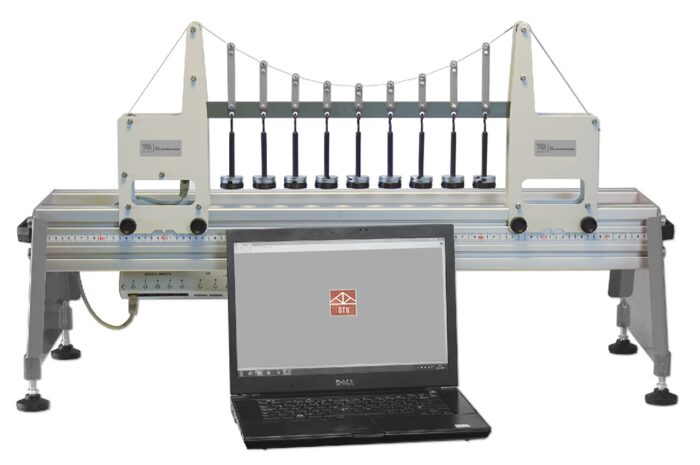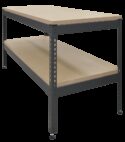Experiment
STS19

Simple Suspension Bridge (Next Generation Structures)
Experiment for the study of the characteristics of a simple suspension bridge. Mounts on the Structures platform and connects to Structures automatic data acquisition unit and software.
If you have any questions or you'd like to discuss a product, please call us.
+44 1159 722 611Simple Suspension Bridge (Next Generation Structures)
One of a range of experiment modules that fit to the Structures platform (STS1, available separately), this product helps students to understand how loads affect tension in the suspension cable supporting the ‘deck’ of a suspension bridge. Students add loads to the deck held by the suspension cable between two supports. A load cell in the left-hand support measures the cable tension.
Students apply loads, which change the cable tension. They use textbook beam equations to predict the tension for any given load, comparing them to measured results. This helps confi rm the reliability of the textbook equations and the accuracy of the experiment results. The theory shows the simplified parabola-based equation and the more realistic theory, based on the model. It also helps students understand the overwhelming influence of the deck mass against the relatively small loads such as vehicles passing over the bridge.
This product includes additional masses so students may apply a uniformly distributed load (UDL) and a single point load.
The load cell connects to the USB interface hub of the Structures platform for computer display and data acquisition.
Learning outcomes
• How bridge load affects the tension in a suspension cable
• Comparing a central point load with a UDL
• Exploring the ratio of bridge ‘deck’ mass and a moving load
• Comparing simple parabola-based theory with a more realistic analysis of the model










